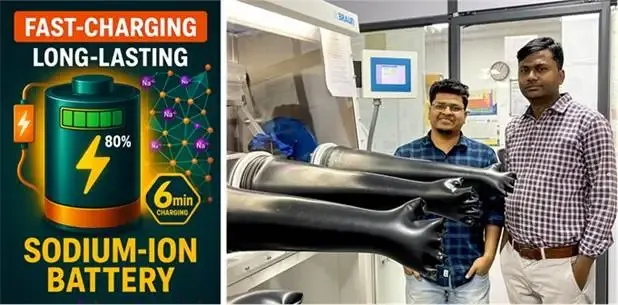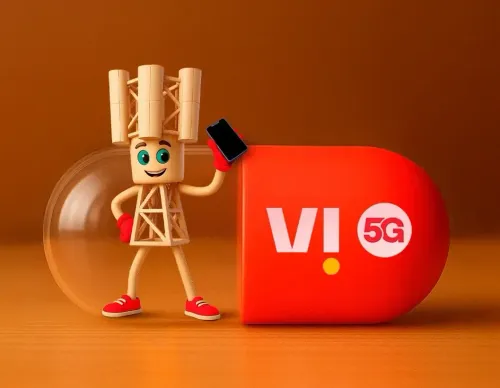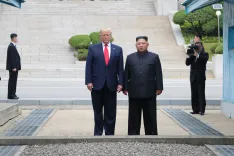Have Indian Scientists Created a Fast Charging Sodium-Ion Battery?

Synopsis
Key Takeaways
- Ultra-fast charging capabilities, reaching 80% in six minutes.
- Over 3,000 charge cycles for long-lasting performance.
- Innovative use of nanotechnology enhances efficiency.
- Potential to make clean energy accessible to underserved areas.
- A step towards India’s energy self-reliance.
New Delhi, May 19 (NationPress) - A dedicated research group at the Jawaharlal Nehru Centre for Advanced Scientific Research (JNCASR), which operates autonomously under the Department of Science and Technology (DST), has unveiled a groundbreaking sodium-ion battery (SIB) capable of ultra-rapid charging, as announced on Monday.
This innovative battery, based on sodium instead of lithium, could propel the nation towards achieving self-sufficiency in energy storage solutions—a pivotal objective of the Indian government’s Atmanirbhar Bharat initiative.
Utilizing a unique ‘NASICON-type’ cathode and anode material, this battery can recharge to 80 percent in merely six minutes and is designed to endure over 3,000 charge cycles.
In contrast to traditional SIBs, which are often hindered by protracted charging times and limited lifespans, this new variant employs a sophisticated blend of chemistry and nanotechnology.
Led by Professor Premkumar Senguttuvan alongside PhD candidate Biplab Patra, the researchers crafted an innovative anode material, optimizing it in three significant manners—reducing particle size to the nanoscale, encasing them in a thin carbon layer, and enhancing the anode by introducing a small fraction of aluminum.
These modifications facilitate the swift and safe movement of sodium ions, achieving both rapid charging and longevity.
As the globe accelerates towards electrification—from automobiles to rural communities—there is a pressing demand for affordable, swift, and secure battery solutions. Although lithium-ion batteries have been the backbone of this transformation, their high cost and the limited availability of lithium resources pose challenges.
Nevertheless, scientists in Bengaluru may have identified a viable alternative.
Beyond economic advantages, these sodium-ion batteries have the potential to power a diverse range of applications, including electric vehicles, solar energy systems, drones, and rural households, thereby enhancing the accessibility of clean energy where it is most needed.
The technology has undergone rigorous testing and validation through advanced methods, such as electrochemical cycling and quantum simulations.
What makes this development particularly thrilling is its dual capability to enable rapid charging while mitigating the fire hazards and degradation associated with conventional batteries.
Although further advancements are necessary prior to market launch, this discovery signifies a notable leap forward, according to the ministry.









